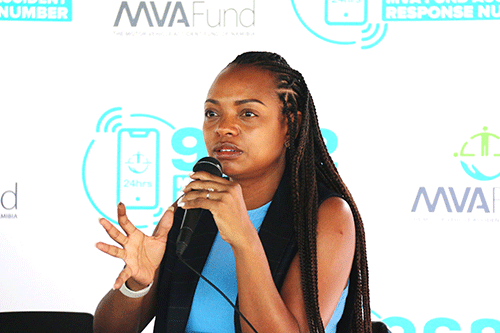In light of the recent fuel levy cut of 25% to make local fuel prices more affordable, the Motor Vehicle Accident (MVA) Fund says it had to undergo stress tests and adjust internally.
This includes delayed capital projects but reassured its commitment to paying claims and services required. The fund’s CEO Rosalia Martins-Hausiku shared this at a media engagement on Friday.
Martins-Hausiku said the cut was effective 1 May 2022 but will only be felt from July 2022 onwards with the hope that it will be restored after three months when the situation returns to normalcy.
“It hasn’t hit our pockets yet and that is because there is the delay between the time of implementation and the time they collect and pass it on to us which takes about 45 days,” explained Martins-Hausiku.
She added: “We are not waiting for it to hit our pockets, we had to go back to the drawing board and craft scenarios and adjust to accommodate the shock of the 25%, and it is a big shock. I am not going to underplay it because of our deliverables.”
Martins- Hausiku admitted that capital projects had to be pushed back. “In terms of our operational costs, we also had to scale down quite a lot so that we can absorb the shock,” she disclosed.
The CEO continued that the public has expressed concern about the ability of the fund to achieve its mandate under the current financial hurdle, in terms of paying claims and patients’ medical expenses.
“I want to assure our hospitals and physiotherapists and the patients that we will continue paying the bills because that’s our number one priority. We put everything else to the back seat in our priority to continue paying service providers, treating doctors and other specialists,” said Martins-Hausiku.
The MVA’s CFO Lukas Ndjamba said fuel levies are fixed at 47.7 cents per litre and it has been fixed since 2013. “When the increases or decreases come, it is usually based on the overall under-recoveries that are made by the National Energy Fund. Remember, we are a net importer of fuel. If you look at it, we are actually price takers as a country and we don›t have an influence as far as the cost price of fuel is concerned,” he explained.
Ndjamba said importers of fuel such as Total or Shell have a set margin, which they need to make from the sale of fuel, adding that with the conflict in Russia and Ukraine, a big increase was noticed in the cost of crude oil.
Other interventions the fund has embarked upon is fixing or redesigning homes/rooms of persons who have been severely impacted by accidents. “We don’t operate like NHE, we set up a structure for example, especially for those in villages based on their injuries and for those who cannot go back to their homes, we then make a functional room that has a bathroom or shower, a ramp and everything else need,” said Martins-Hausiku, adding that so far, they have upgraded or fixed 10 homes.


